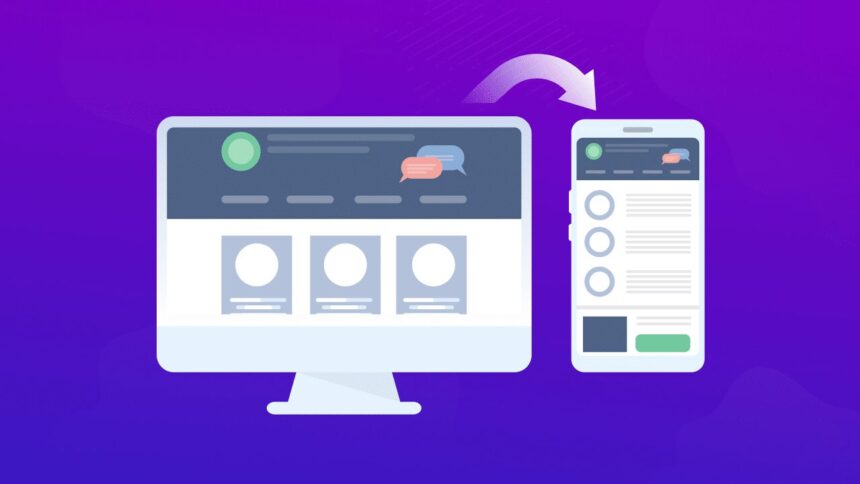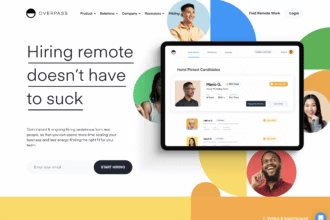How to Optimize Your Website for Mobile Users in Nigeria
With over 100 million mobile internet users in Nigeria, ensuring your website is mobile-friendly is no longer optional, it’s essential. Nigeria’s mobile penetration rate is among the highest in Africa, and businesses that prioritize mobile optimization gain a competitive edge. This blog post explores practical, actionable steps to optimize your website for mobile users in Nigeria, boosting user experience, engagement, and search engine rankings.
Why Mobile Optimization Matters in Nigeria
Nigeria’s internet landscape is mobile-driven. Most users access the web via smartphones due to affordability and widespread network coverage, including 4G and emerging 5G. Google prioritizes mobile-friendly websites in its rankings, especially since the mobile-first indexing update. A poorly optimized site can lead to high bounce rates, lost customers, and lower conversions. For Nigerian businesses, catering to mobile users means tapping into a massive audience and improving SEO performance.
Key Statistics
- 80% of Nigerians use smartphones for online shopping, browsing, and social media.
- Google ranks mobile-friendly websites higher in search results.
Steps to Optimize Your Website for Mobile Users
1. Adopt a Mobile-First Design
A mobile-first design prioritizes the mobile user experience before scaling up to desktops. Use responsive design to ensure your website adapts to different screen sizes, from budget Android phones to high-end iPhones used in Nigeria.
- Choose a Responsive Framework: Use frameworks like Bootstrap or Tailwind CSS to create flexible layouts.
- Simplify Navigation: Use hamburger menus and clear call-to-action buttons for easy access on small screens.
- Test Across Devices: Test your site on popular Nigerian devices like Tecno, Infinix, and Samsung phones.
Pro Tip: Use Google’s Mobile-Friendly Test tool to check how your site performs on mobile devices.
2. Improve Page Loading Speed
Slow-loading websites frustrate users, especially in Nigeria, where network speeds can vary. A fast website improves user satisfaction and SEO rankings.
- Compress Images: Use tools like TinyPNG to reduce image file sizes without losing quality.
- Minimize Code: Remove unnecessary CSS and JavaScript to streamline your site.
- Leverage Browser Caching: Store static files locally to reduce load times for returning visitors.
- Use a Content Delivery Network (CDN): CDNs like Cloudflare deliver content faster by using servers closer to Nigerian users.
Stat: Pages that load in under 3 seconds have a 40% lower bounce rate (Google, 2024).
3. Optimize for Local Search
Nigerian users often search for local businesses or services, such as “restaurants in Lagos” or “phone repair in Abuja.” Optimize your site for local SEO to capture this audience.
- Use Local Keywords: Include phrases like “in Nigeria,” “Lagos,” or “Abuja” in your content, titles, and meta descriptions.
- Create a Google Business Profile: Add your business to Google Maps for better visibility.
- Add Schema Markup: Use structured data to help search engines understand your content, like business hours or location.
Example: If you run a fashion store in Lagos, use keywords like “affordable fashion in Lagos” or “online clothing store Nigeria.”
4. Simplify Content for Mobile Users
Mobile users prefer concise, easy-to-read content. Nigerian users, often on limited data plans, appreciate lightweight pages that don’t drain their data.
- Use Short Paragraphs: Break text into small chunks for readability.
- Prioritize Key Information: Place important details, like contact info or pricing, at the top.
- Avoid Heavy Media: Limit videos or auto-playing content that consumes data.
Tip: Use bullet points and headings to make content scannable.
5. Ensure Easy Payment Options
Nigeria’s e-commerce sector is booming, with mobile payment platforms like Paystack, Flutterwave, and mobile money gaining popularity. Make payments seamless for mobile users.
- Integrate Local Payment Gateways: Support platforms like Paystack or Flutterwave for secure transactions.
- Simplify Checkout: Reduce form fields and enable one-tap payment options.
- Support USSD Payments: Many Nigerians use USSD for quick, low-data transactions.
Stat: 70% of online shoppers in Nigeria prefer mobile payment options (Nigerian E-commerce Report, 2024).
6. Optimize for Low-Bandwidth Networks
Nigeria’s internet infrastructure varies, with some areas relying on 2G or 3G networks. Optimize your site to perform well on slower connections.
- Use Lightweight Themes: Avoid heavy WordPress themes or plugins that slow down your site.
- Enable AMP (Accelerated Mobile Pages): AMP creates stripped-down versions of your pages for faster loading.
- Test on Low Networks: Use tools like Chrome DevTools to simulate 2G or 3G connections.
7. Enhance User Experience with Touch-Friendly Features
Mobile users in Nigeria interact with websites via touch. Ensure your site is easy to navigate with fingers.
- Increase Button Sizes: Make buttons at least 44×44 pixels for easy tapping.
- Space Out Links: Prevent accidental clicks by spacing links and buttons.
- Avoid Pop-Ups: Intrusive pop-ups annoy mobile users and hurt SEO.
8. Monitor and Test Regularly
Optimization is an ongoing process. Use analytics to track performance and identify areas for improvement.
- Use Google Analytics: Monitor mobile traffic, bounce rates, and user behavior.
- Conduct A/B Testing: Test different layouts or buttons to see what works best.
- Gather Feedback: Ask Nigerian users for input on their mobile experience.
Tool Tip: Tools like Hotjar can show how users interact with your mobile site.
Bonus: Related Blogs You Should Read on Optimizing Website
We have a few more blogs on optimizing website. If you are interested in learning more about mobile optimization, check out the blogs below.
- Optimizing Your Website for Voice Search in Nigeria
- Using AI to Optimize Your Website’s User Experience
- Voice Search Optimization Tips for 2025: Mastering the Future of Search
Common Mistakes to Avoid
- Ignoring Mobile SEO: Desktop-only optimization hurts your Google rankings.
- Overloading with Ads: Too many ads slow down your site and frustrate users.
- Neglecting Local Needs: Failing to include local languages like Yoruba or Hausa may alienate users.
Conclusion
Optimizing your website for mobile users in Nigeria is critical for reaching a growing audience and improving your Google rankings. By adopting a mobile-first design, improving load times, optimizing for local search, and ensuring seamless payments, you can create a user-friendly experience that resonates with Nigerian users. Start implementing these tips today, test regularly, and watch your website thrive in Nigeria’s mobile-driven market.
Call to Action: Ready to make your website mobile-friendly? Run a free test with Google’s Mobile-Friendly Test tool and start optimizing now!
Image source: Essential-addons.com





